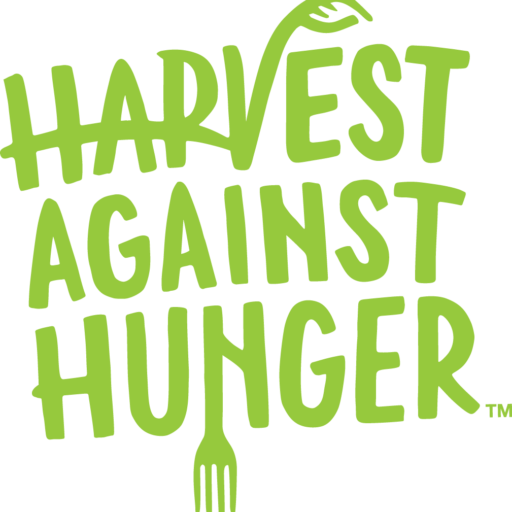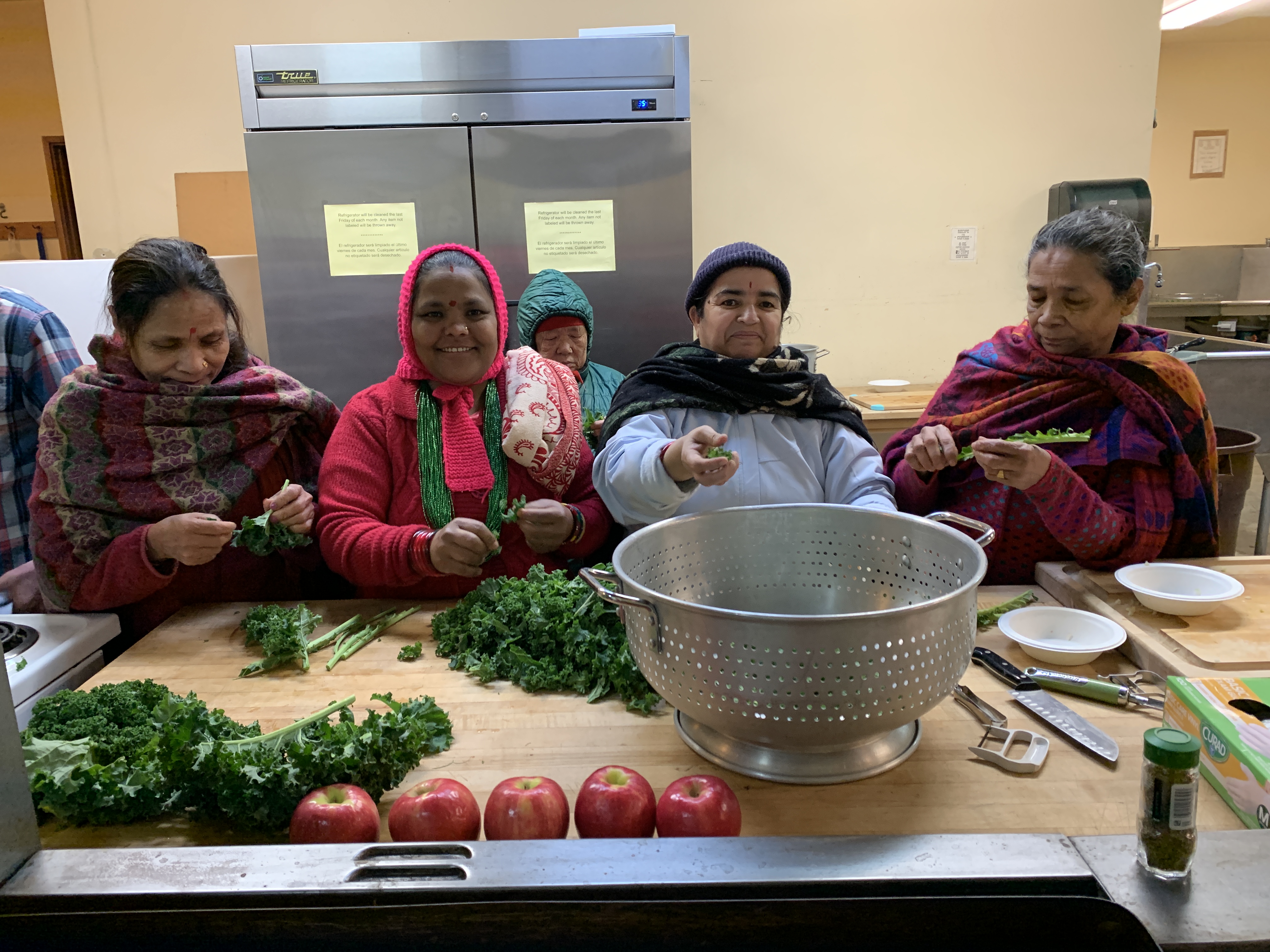
Cooking Connections; Partnerships to Promote Emotional Wellbeing Among Senior Refugee and Immigrant Communities
19 Feb 2020, by Admin in Harvest Blog, Washington state, International Rescue CommitteeHarvest VISTA Anastasia Ryseff serves at the International Rescue Committee (IRC) New Roots Program. New Roots at the IRC Seattle works with refugee, immigrant and vulnerable communities in South King County to improve food access and community wellness. New Roots provides individuals and families space to grow their own food at four different community gardens, while also offering community programs such as English classes, yoga, stress reduction groups, and student summer internships. New Roots also runs two subsidized farm stands that sell produce grown by clients in the gardens. For those who need or want assistance, New Roots offers trainings and workshops on gardening skills and guidance on how to navigate the Pacific Northwest growing climate.
On an icy afternoon in January, the Namaste Garden’s senior Bhutanese refugee community members gathered at St. Thomas Church in Tukwila, WA to attend a cooking class. The class was taught by local chef Adam Bayley who generously volunteered his time and expertise in designing a thoughtful cooking class for the group.
As soon as it was time to head into the church’s commercial kitchen, the women enthusiastically filed in with the men less confidently sauntering in behind. The kitchen quickly warmed up with busy hands chopping and peeling seasonal produce. The student’s final product was a root vegetable and fennel soup with braised kale, onions and apples. The recipe used ingredients that are budget friendly, easy to grow in the region and a change of pace from the typical Bhutanese cuisine taste profile. While the group was made up of seasoned chefs, the aim of the class was to introduce local flavors and provide an opportunity to connect and enjoy a meal together.
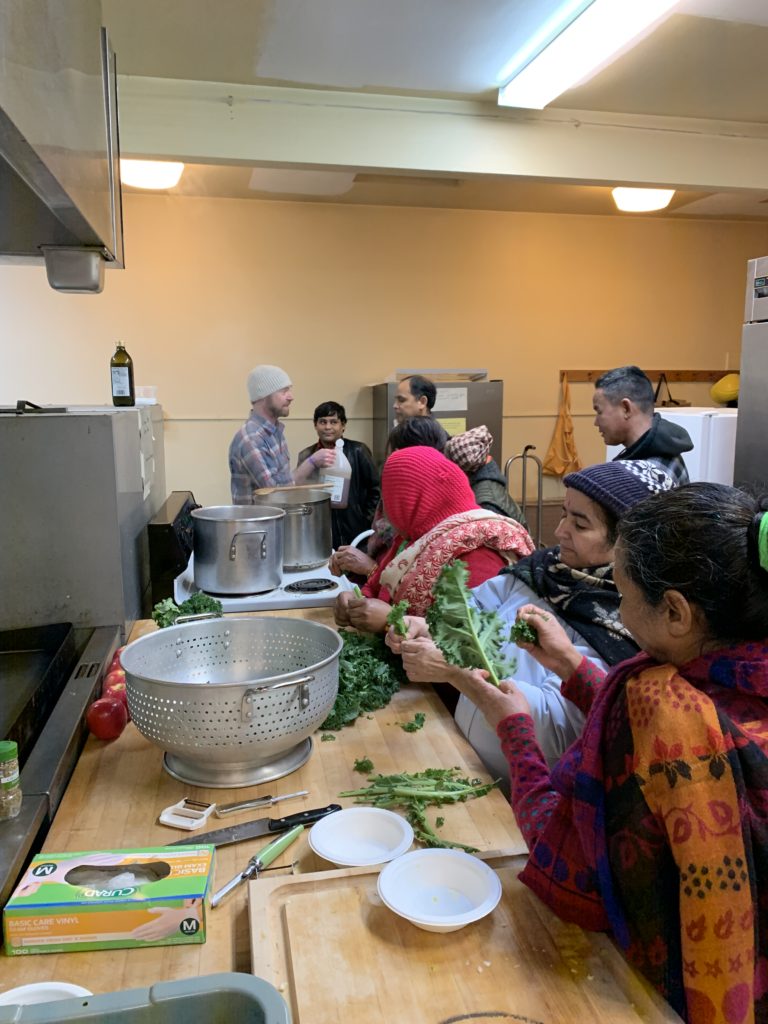
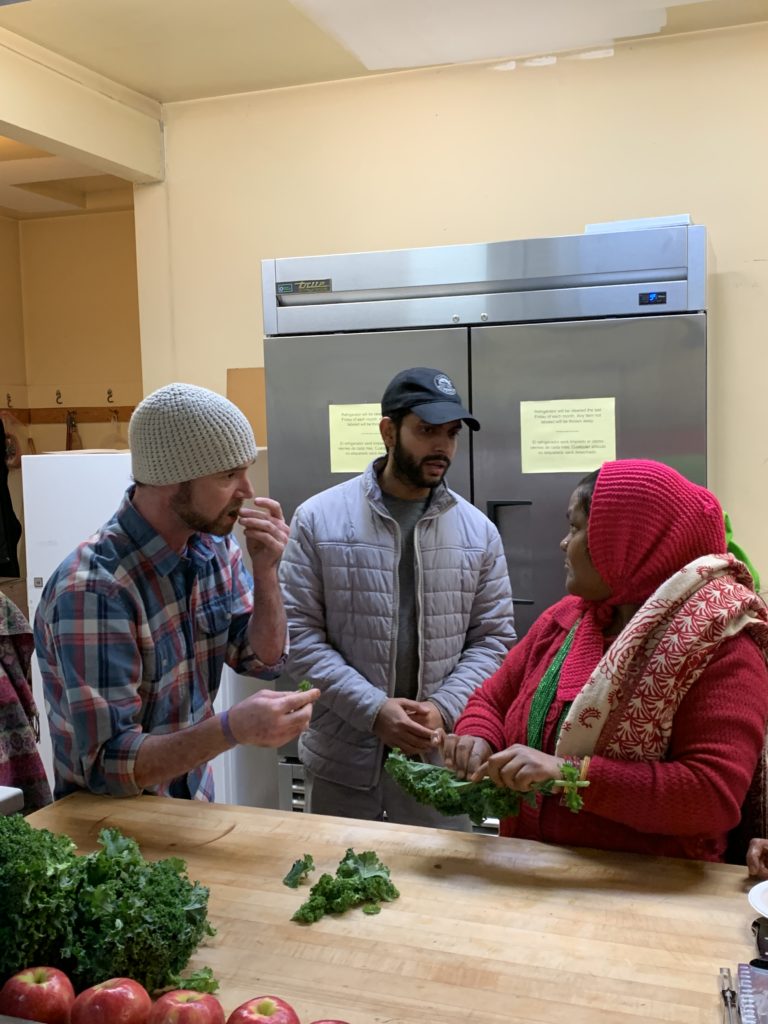
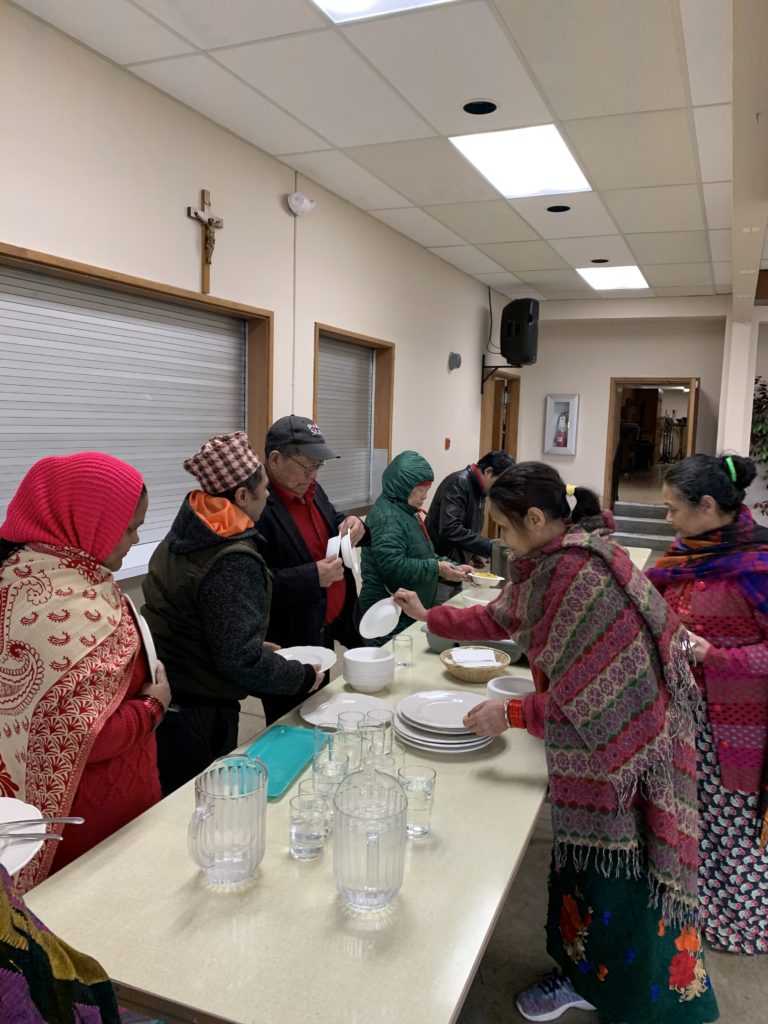
The cooking class is a part of the recently launched New Roots Senior Program which provides relevant classes, gardening opportunities and field trips in the Seattle area for refugees aged 60 years or older and who have been in the US for less than five years. The program promotes emotional wellbeing and social connections among a community that frequently experiences extreme isolation. Harvest VISTA Anastasia Ryseff supports the program through community outreach and relationship building, ensuring that the programming and planning stretches New Roots limited budget to provide rich educational and local experiences for its participants.
On the weekends, Anastasia works as a server at one of the two restaurants Adam manages. After hearing about her work at the IRC, Adam was curious how he could get involved as a volunteer. Not before long, Anastasia organized the logistics and is thrilled to welcome him back to teach a second class this February for a different group of seniors in Kent, WA.
Through this experience Anastasia realized that building partnerships and recruiting volunteers is sometimes as simple as telling people about her position as a Harvest VISTA with New Roots. She feels fortunate to live in a city where people are receptive to the work done at the IRC which often means these conversations lead curious listeners to inquire about volunteer involvement.
Additionally, she has had much success in forging partnerships with a colder market through writing in-kind donation letters and having phone and in-person conversations with other organizations and stakeholders in the Seattle-area. A few of the other partners she has cultivated for the Senior Program include the Chihuly Garden of Glass, Underground Seattle, Bellevue Botanical Garden and Hopelink. Most recently, she was thrilled to connect with a professional artist and former IRC client, who will provide painting classes for the seniors.
The New Roots Senior Program now serves over 20 recently arrived senior refugees. Anastasia will continue to capacity build and create connections for New Roots newest program in hopes that it will live on past its first year and grow to have an even larger impact to improve well being among South King County’s most isolated communities.


